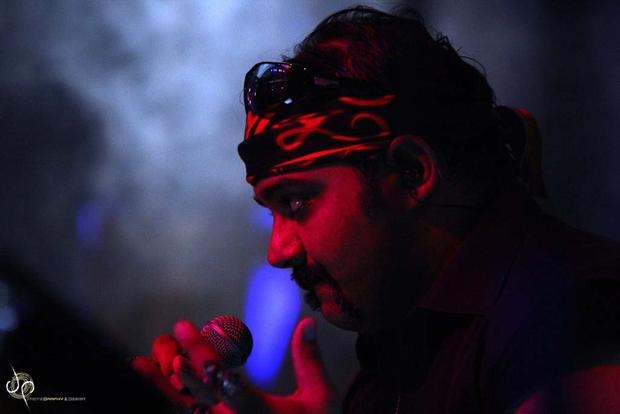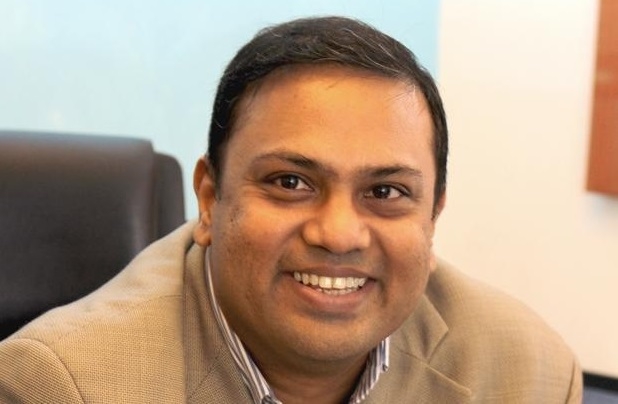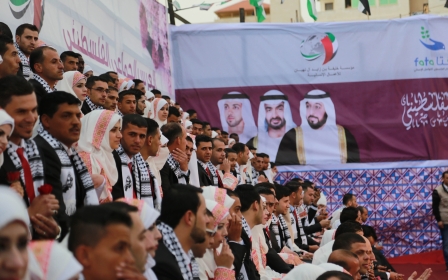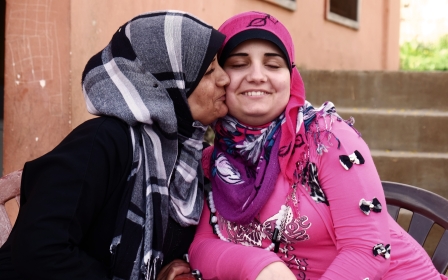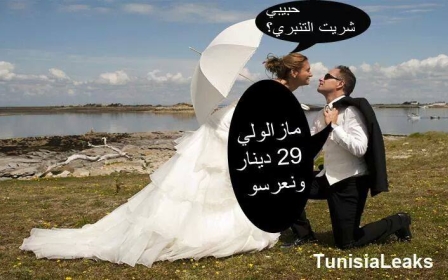Love in the time of practicality for Indians in the UAE
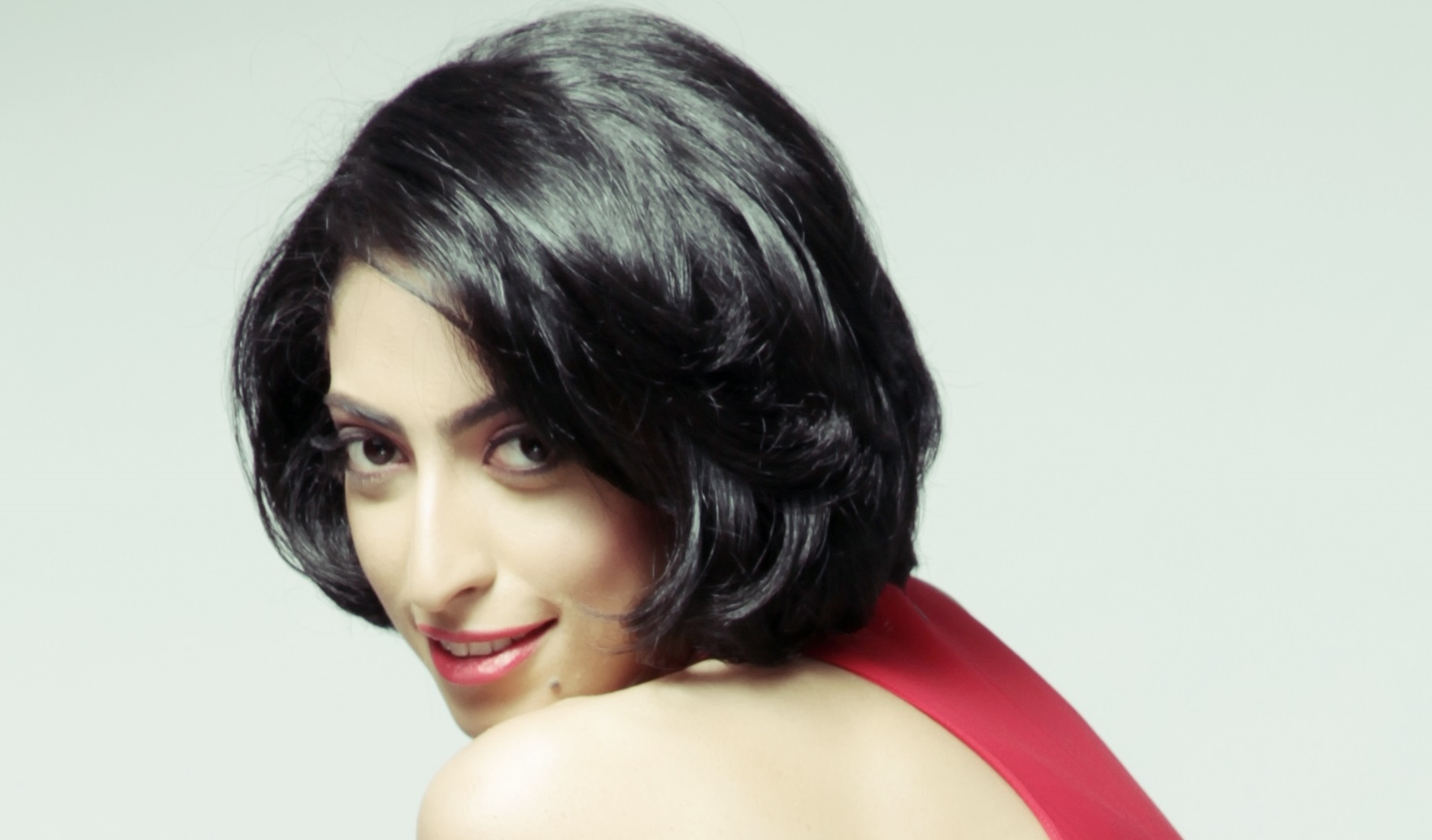
“Indian society is complex,” 27-year-old Dubai resident Yamini Menon quips. “They tell you to stay away from strangers all your life, then expect you to sleep with one on the very first night of marriage.”
Menon’s native country of 1.3 billion encompasses 780 different languages, innumerable cultures, castes and communities, and has a diaspora of almost 30 million who bring their traditions with them wherever they go. It’s also famously home to a complicated set of protocols and often-contradictory attitudes when it comes to love – or, rather, marriage.
Indian citizens make up about a quarter of the UAE’s population – most of whom, no matter how cosmopolitan, take on society’s wishes when it comes to the cornerstone of their culture: marriage. But a new type of union is becoming popular, thanks to the help of matrimonial websites.
Menon, glamorous rock band manager and budding entrepreneur, finds herself at a crossroads. Young, modern and career-focused, the time has come for the single woman to turn her attention to matters of the heart. Or head… or some combination thereof.
About a year ago, Menon’s mum set up a profile for her on the Indian world’s biggest so-called matrimonial website, shaadi.com (‘shaadi’ means ‘marriage’ in Hindi) – a sort-of dating site without the dating.
“For me the idea of being on the matrimony site was very uncomfortable initially, and still is, but I thought if it gives my parents a certain sense of satisfaction and a sense of fulfilling their duty of finding the ideal match for me, let them do so. One thing is for sure, they’d never force me to marry someone I don’t approve of.”
She confesses to feeling some pressure to marry, though she says her parents just want to see her "settled" with a family of her own.
“By Indian standards I’m way beyond marriageable age. At 27 I should have had one if not two kids by now.”
But this isn’t how Menon had imagined things would go. She anticipated a love match, much like that of her unorthodox parents who fell in love at college and courted for eight years before eventually formalising their inter-religion union after Menon’s Protestant mother converted to Hinduism.
“I have an elder sister and as kids we always thought we would find our partner ourselves,” Menon explains.
That hasn’t been the case for either woman, both of whom are among the UAE’s 2.2 million non-resident Indian population.
“In my sister’s case love didn’t work out and at 24 she was all set to marry who my parents thought would be right for her [when] they found her a match on Bharatmatrimony.com.”
Her sister has been happily married for more than five years, and now has a three-year-old son. But Menon still has some disquiet about the process herself, after three unsuccessful introductions over the past year.
“I know a lot of friends and family who found their life partners on these matrimonial sites. Personally, though, I see no reason to create a 'profile' and publish it, as I feel there is so much more to a person and it’s not fair to limit them to 500 words. And half the profiles are not even written by the person – it’s either the parents, siblings or friends writing as them, [and] the impression it gives is not entirely true.
“In most Indian families all your aunts and uncles and neighbours and their relatives and their cousins consider it their personal duty and responsibility to get you married off after a point and hence they all play the role of a marriage broker.”
Arranged marriages vs love marriages
Indian marriage can elude simplistic Western notions of love (and concomitant marriage). It is not a matter, for most, of boy meets girl and lives happily ever after, but a family affair, something with ramifications for caste and society; often a Victorian-style exercise in political and social manoeuvring.
Since the 1970s, the incidence of love marriages has been increasing, but in spite of a national obsession with saccharine Bollywood romances almost 90 percent of marriages remain arrangements. India’s arranged marriage divorce rates number less than one percent while the commonly accepted rate of divorce in the West is 50 percent. Anecdotally, love marriages seem to be bumping up rates of Indian divorce.
So one potential saviour and tool in bridging this gap between the desires of the individual and needs of the family is the "arranged love marriage," something the raft of matrimonial websites that have sprung up since the dotcom boom specialise in.
Vin Nair is many things. The 42-year-old father and marketing and sales director is the lead singer of Vin Sinners, the first UAE rock band to be signed to a major record label (Universal). He also has a pretty good insight into the matrimonial website industry, acting as the vice president of Shaadi.com for several years until 2008.
It's these websites that can provide a sort of halfway-house between love matches and arranged marriages, giving a degree of control to the protagonists in their love story while family members act as "facilitators" with full access to the accounts.
“A lot of people are starting to make the decision for themselves, [though] not without endorsement from the family.”
Shaadi.com chief executive Gourav Rakshit says matrimonial websites are instruments of social change, and even feminism.
“Their primary contribution has been in transitioning the process of finding a life partner from the hands of parents into the hands of the individuals themselves. Equally important, they’ve empowered women to take control of this process, and operate on an equal footing with men in collaborating to find the right match.”
That can have huge ramifications given the historical and cultural importance of the institution of marriage to the social fabric in India.
Rakshit says marriage is at the “core” of Indian culture – regardless of religion – and is, if anything, gaining more value given the erosion of the traditionally large family units. Marriage still operates as the glue of society, he says.
“As joint families give way to nuclear families, marriage becomes an even more important enabler of companionship, since casual and live-in relationships are still not accepted by a large majority of our population.”
The make-up of the website’s customers by religion roughly reflects the composition within India, with 74 percent of customers identifying as Hindu, 13 percent as Muslim, four percent as Christian, and the remaining nine percent as something else.
It is difficult walking the tightrope between modernity and tradition, especially as India’s values morph at an ever-quicker speed. The country has the largest youth population in the world, spearheading cultural change at a pace never seen before in Indian history.
“The changing face of youth in India requires us to stay current and embrace change at a much faster pace than most businesses,” Rakshit says. But he says this is done in a way that does not alienate the families and offend traditional sensibilities, which explains the company's tactful, if schmaltzy, motto: "Love arranged by Shaadi.com."
“We believe that the distinction between love and arranged marriages are a thing of the past," adds Rakshit.
Nair agrees. “I wouldn’t say that India is a conservative country anymore, but it’s a traditional country. It’s got a lot of traditional elements. People value those elements. But marriage websites have managed to bridge some of the tradition as well as the progressive environment that the customer wants.”
Nair’s appreciation of his former employer has become very personal. The recently-divorced father-of-one is now a client, after the end of a “very successful” love marriage of 15 years.
“I was having lunch with [Shaadi.com founder] Anupam Mittal in Bombay and he was like ‘Hey, you should use this site.’ I was like ‘I haven’t even thought about it’ but I got on the website [and] I’ve met some very interesting people.”
The decision to join four months ago was also brought about by some gentle encouragement from his 15-year-old daughter.
“She’s been telling me ‘It’s about time you manned up and started seeing someone’,” he laughs.
The readiness for marriage may not be the kind of attitude you’d expect from a seasoned rocker, but Nair says “more frivolous” sites like Tinder are better suited to the younger generation.
“As you grow older you get more discerning - you make certain choices in life. I can’t deal with the madness every weekend – I would like some method in the madness.”
Nair is part of a fast-growing demographic of matrimonial website users. Gourav says customers looking for marriage a second time around are growing at about 50 percent annually – “substantially faster than other segments”.
But the websites may have an increasingly uphill battle appealing to the younger generation. Inder Shergill, 26, lives in India’s Punjab province and holds similar doubts as Menon about the veracity of users’ profiles.
“Marriage websites are a total waste of time and energy. It's just a kind of a marriage broker that is not at all necessary nowadays. People don’t always post the truth about themselves, fake profiles prevail. As in the old days when brokers used to hide important negative things about one party, marriage sites do the same thing.”
The mechanical engineer graduate says while she is open to both a love marriage or an arranged marriage she, like Menon, would need to meet her prospective groom ahead of time. Her parents have also given her their blessing for her to choose her own husband, but she is not looking for love yet.
Shergill says her group of friends share the same views: “We don't think about relationships and marriage theoretically. We think and live practically.”
New MEE newsletter: Jerusalem Dispatch
Sign up to get the latest insights and analysis on Israel-Palestine, alongside Turkey Unpacked and other MEE newsletters
Middle East Eye delivers independent and unrivalled coverage and analysis of the Middle East, North Africa and beyond. To learn more about republishing this content and the associated fees, please fill out this form. More about MEE can be found here.


